
Ibb: The Green Jewel of Yemen
Nestled in the heart of Yemen, Ibb is often referred to as the 'Green Jewel' due to its lush landscapes and fertile valleys. This city offers a unique blend of natural beauty and rich history, making it a captivating destination for tourists. The temperate climate and abundant rainfall contribute to the verdant scenery, which is a stark contrast to the arid landscapes typically associated with the Arabian Peninsula. As you explore Ibb, you'll be enchanted by its terraced fields, vibrant gardens, and thriving agriculture. Ibb is also rich in cultural heritage. The city boasts a variety of historical sites, including ancient mosques, traditional souks, and centuries-old buildings that reflect Yemen's architectural prowess. One of the highlights is the Al-Qahira Castle, perched atop a hill and offering panoramic views of the city and surrounding countryside. The old city of Ibb is a labyrinth of narrow alleys, where you can experience the authentic Yemeni lifestyle and hospitality firsthand. For nature enthusiasts, the surrounding areas of Ibb offer numerous opportunities for hiking and exploration. The nearby Jibla town, with its Queen Arwa Mosque, is a must-visit for history buffs. Whether you're interested in immersing yourself in local culture, exploring historical landmarks, or simply enjoying the natural beauty, Ibb provides an unforgettable experience for every traveler.
Local tips in Ibb
- Visit the Al-Qahira Castle for stunning views and a glimpse into the city's history.
- Explore the old city of Ibb to experience traditional Yemeni architecture and culture.
- Take a day trip to Jibla to see the historic Queen Arwa Mosque.
- Plan your visit during the rainy season (April to August) to witness the greenery in full bloom.
- Try the local cuisine, especially the traditional Yemeni dishes in the local souks.
Ibb: The Green Jewel of Yemen
Nestled in the heart of Yemen, Ibb is often referred to as the 'Green Jewel' due to its lush landscapes and fertile valleys. This city offers a unique blend of natural beauty and rich history, making it a captivating destination for tourists. The temperate climate and abundant rainfall contribute to the verdant scenery, which is a stark contrast to the arid landscapes typically associated with the Arabian Peninsula. As you explore Ibb, you'll be enchanted by its terraced fields, vibrant gardens, and thriving agriculture. Ibb is also rich in cultural heritage. The city boasts a variety of historical sites, including ancient mosques, traditional souks, and centuries-old buildings that reflect Yemen's architectural prowess. One of the highlights is the Al-Qahira Castle, perched atop a hill and offering panoramic views of the city and surrounding countryside. The old city of Ibb is a labyrinth of narrow alleys, where you can experience the authentic Yemeni lifestyle and hospitality firsthand. For nature enthusiasts, the surrounding areas of Ibb offer numerous opportunities for hiking and exploration. The nearby Jibla town, with its Queen Arwa Mosque, is a must-visit for history buffs. Whether you're interested in immersing yourself in local culture, exploring historical landmarks, or simply enjoying the natural beauty, Ibb provides an unforgettable experience for every traveler.
When is the best time to go to Ibb?
Iconic landmarks you can’t miss
Dar AlHajar
Explore Dar AlHajar, a breathtaking historical landmark in Yemen, showcasing stunning architecture and rich cultural heritage amidst spectacular natural beauty.
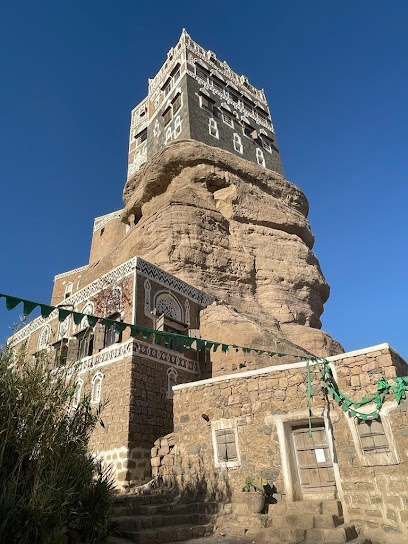
Seera Castle
Discover the majestic Seera Castle in Aden, Yemen - a historical fortress offering breathtaking views and rich cultural heritage.
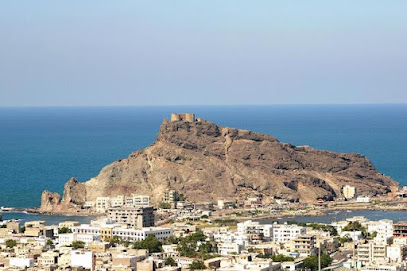
Alsahareej (Water Tanks)
Explore the ancient engineering marvels of Alsahareej Water Tanks in Aden, Yemen, a historic site showcasing remarkable architecture and rich cultural heritage.
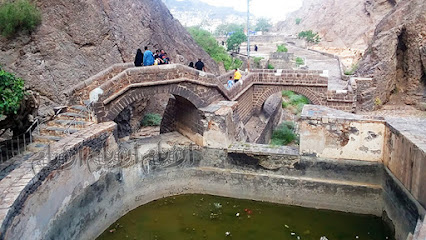
باب اليمن صنعاء القديمة
Discover the historic Bab al-Yemen, the gateway to Sana'a's rich cultural heritage, where ancient architecture meets vibrant street life.
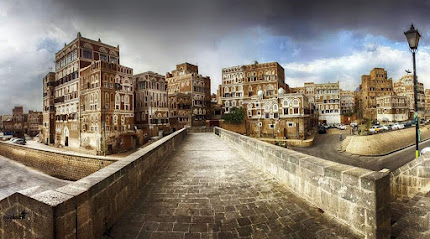
Sukoon Park
Explore Sukoon Park in At Turbah, Yemen, a tranquil escape with stunning views, lush greenery, and serene walking paths perfect for relaxation and adventure.
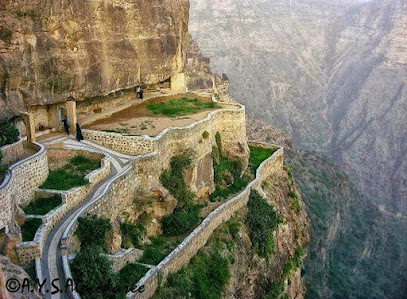
Awwam Temple
Explore the ancient Awwam Temple in Yemen, a historical marvel showcasing the rich cultural heritage and stunning architecture of the Sabaean civilization.
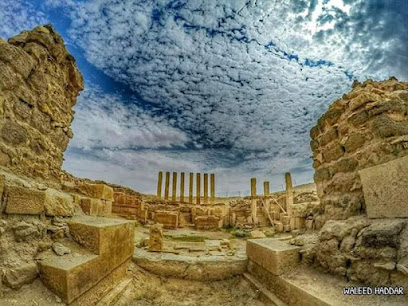
قصر الكثيري
Experience the rich heritage and architectural splendor of Al Kathiri Palace, a must-visit historical landmark in the heart of Seiyun, Yemen.
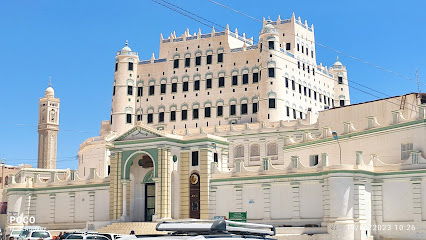
شلال إب
Explore the enchanting Shalal Ib in Yemen, where breathtaking waterfalls meet lush greenery in a serene escape into nature's beauty.
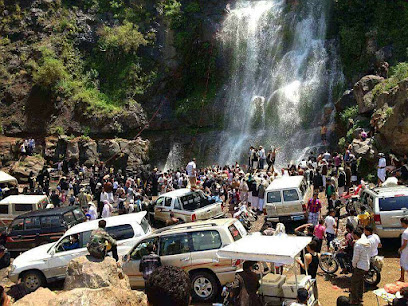
حصن العَشَبي
Explore the Al-‘Ashabi Fortress in Sana'a, Yemen, a historic landmark showcasing stunning architecture and breathtaking views of the surrounding landscape.
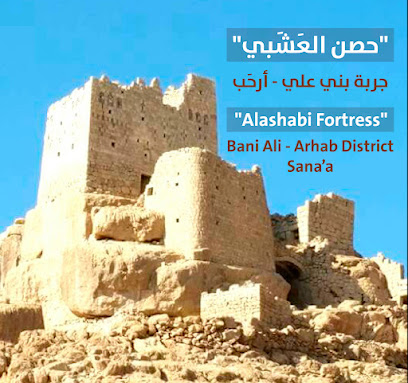
Mudhaffar Mosque
Discover the architectural beauty and cultural significance of Mudhaffar Mosque in Taizz, Yemen, a true gem of Islamic heritage.
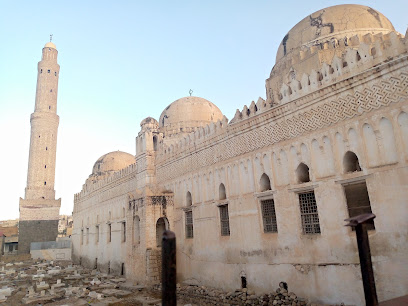
Yemen إب
Experience the hidden beauty of Yemen's Ibb, where stunning landscapes, rich history, and warm hospitality await every traveler.
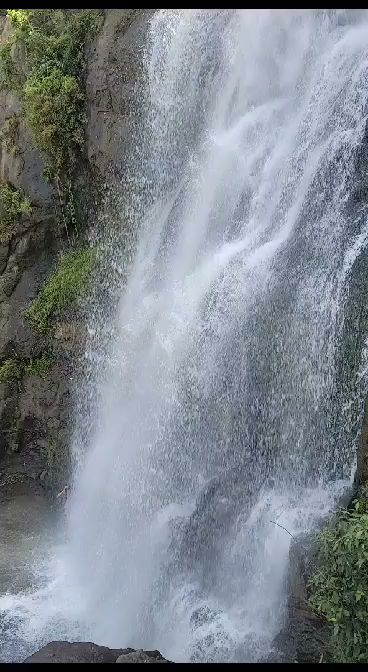
مسجد البعداني
Discover the architectural beauty and spiritual significance of Al-Baidaani Mosque in Ibb, a tranquil retreat for visitors seeking cultural immersion.

Unmissable attractions to see
منتزه سنان ابو لحوم في وراف
Experience the serene beauty of Abu Lahoum Park in Jiblah, a perfect escape for nature lovers and culture seekers in Yemen.
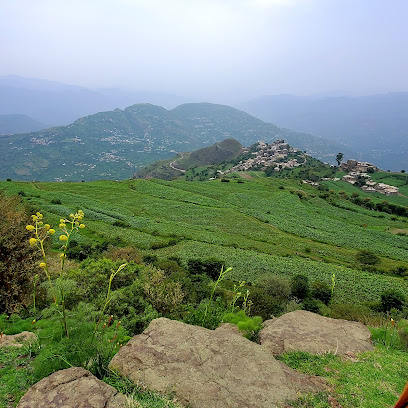
علاء الدين ابو مهاب
Experience the rich culture and stunning landscapes of Allāh al-Dīn Abū Mahāb, a unique tourist attraction in Taizz, Yemen, perfect for cultural exploration.
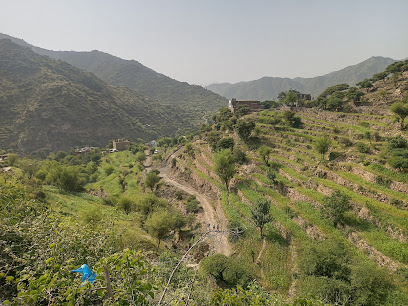
حصن اليفوز
Experience the grandeur of Alifoz Fortress in Yemen, a historical gem surrounded by breathtaking landscapes and rich cultural heritage.
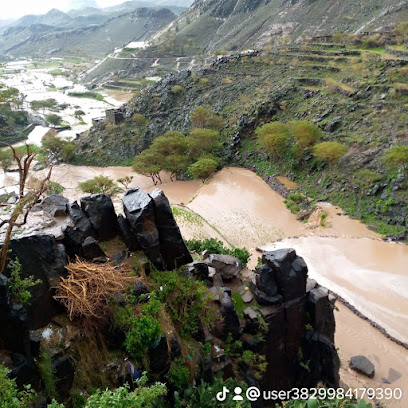
Essential places to dine
Retag Restaurants
Discover authentic Yemeni flavors at Retag Restaurants in Ibb - where every meal tells a story.
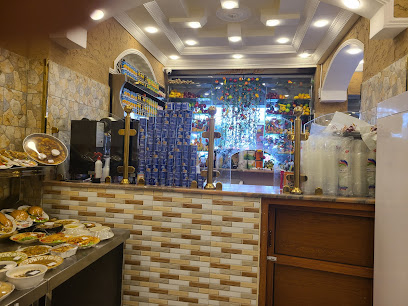
مطعم الراسني
Experience authentic Yemeni cuisine at مطعم الراسني in Ibb—a culinary haven where tradition meets flavor.
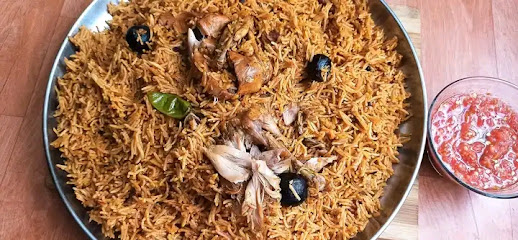
Mohammed Al Shaibani Restaurant
Discover the authentic flavors of Yemen at Mohammed Al Shaibani Restaurant in Ibb - a must-visit culinary destination for every traveler.
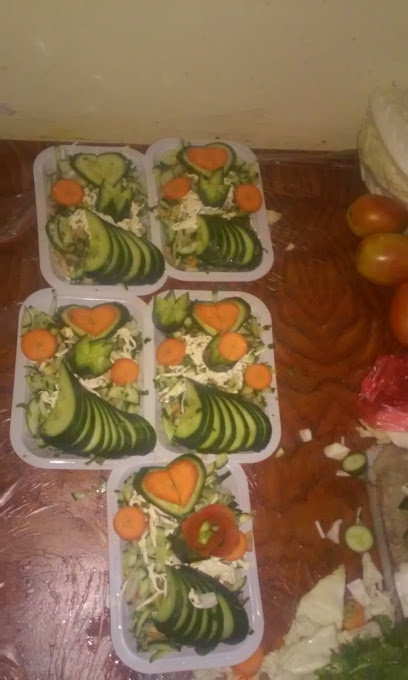
مطاعم تاج سبأ
Experience authentic Yemeni cuisine at مطاعم تاج سبأ in Ibb – where every dish tells a story of tradition and flavor.
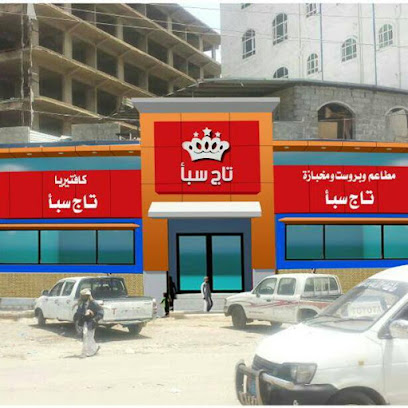
مطاعم الكيان الذهبي
Experience authentic Yemeni flavors at مطاعم الكيان الذهبي in Ibb—where every dish tells a story of tradition and taste.
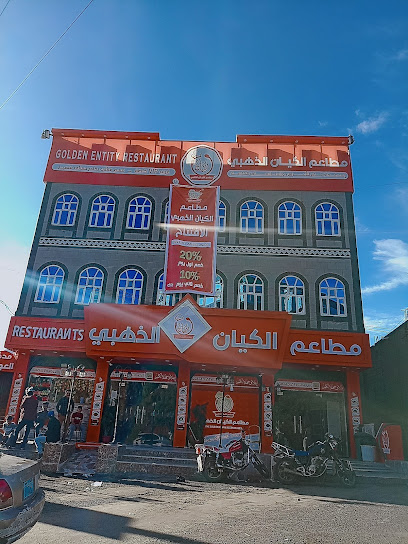
Reem Restaurant Tourism Ibb zihaar
Experience authentic Yemeni cuisine at Reem Restaurant in Ibb - where every dish tells a story.
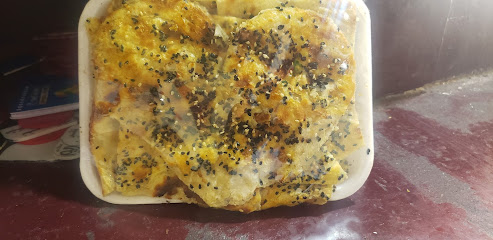
Juha Corner
Experience the vibrant flavors of fast food at Juha Corner in Ibb, Yemen – where convenience meets taste in every bite.
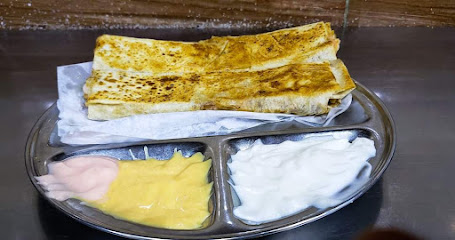
مطعم جراندإب السياحي
Discover authentic Yemeni flavors at مطعم جراندإب السياحي in Ibb - where culinary tradition meets modern dining.
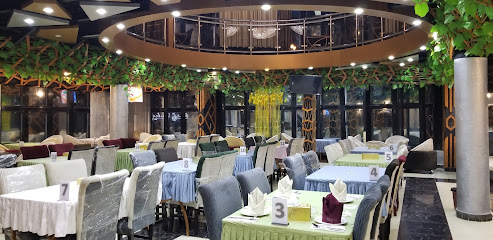
كفتريا المدينة السياحية
Experience authentic Yemeni flavors at Cafeteria Al-Madina in Ibb - where tradition meets taste in an inviting buffet setting.
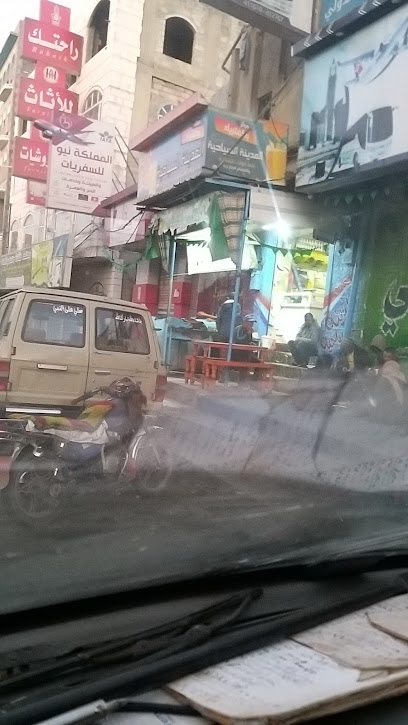
مطعم رويال فود
Discover Royal Food in Ibb, Yemen - where fast food meets local flavors in a vibrant dining experience.
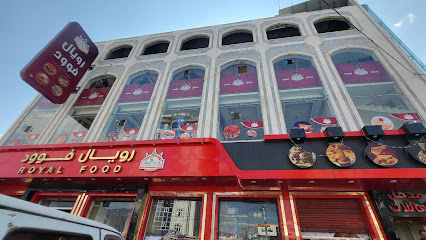
Reem Restaurant
Discover authentic Yemeni cuisine at Reem Restaurant in Ibb – where every dish tells a story.

مطعم الحسينية
Experience authentic Yemeni cuisine at مطعم الحسينية in Ibb – where tradition meets flavor in a cozy atmosphere.
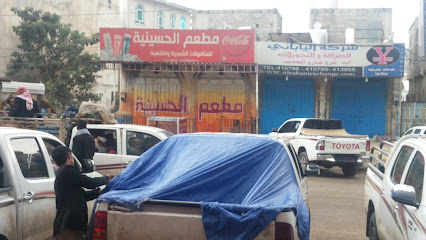
مطعم وبروست وكفتيريا زين
Discover authentic Yemeni cuisine at مطعم وبروست وكفتيريا زين in Ibb – where every dish tells a story.
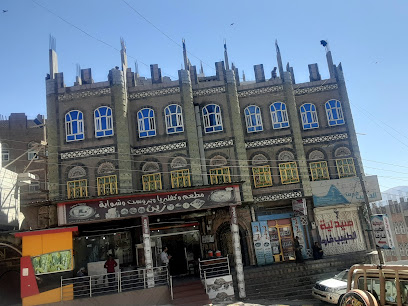
مطعم مثنى
Explore authentic Yemeni cuisine at مطعم مثنى in Ibb - a delightful dining experience filled with local flavors and warm hospitality.
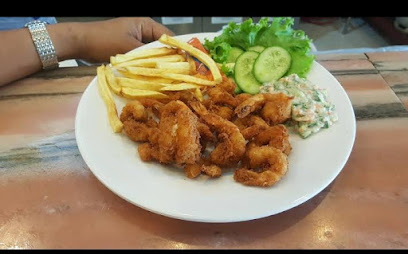
مطعم الوصابي للفول الحره وتميز
Discover authentic Yemeni cuisine at مطعم الوصابي للفول الحره وتميز in Ibb – where every dish tells a story.
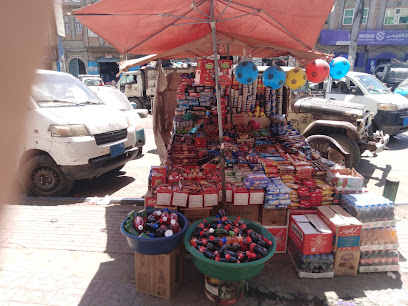
Markets, malls and hidden boutiques
محلات ابوعبده بيع وتأجير الخشب والدعم المعدني
Discover the charm of Ibb at Abou Abda, a unique supermarket specializing in wood and metal support structures that reflect local craftsmanship.
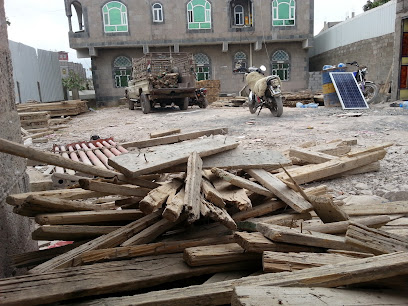
محلات إبن الحاج التجارية
Discover fresh produce and traditional snacks at محلات إبن الحاج التجارية, a vibrant grocery store in the heart of إب, Yemen.

المركزي
Explore the vibrant Central Market of Ibb, Yemen, where local culture, authentic cuisine, and unique crafts await every visitor.

الجبرتي للإكسسوارات
Discover unique fashion accessories at الجبرتي للإكسسوارات, a charming store in Ibb, Yemen, reflecting the beauty of local craftsmanship.

براند لاكشري Brand Luxury
Explore exquisite fashion at Brand Luxury in Ibb, Yemen, where elegance meets style in a premier shopping destination.
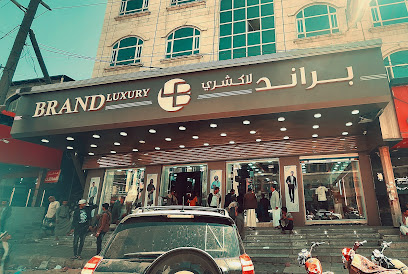
مناحل الجودة للعسل اليمني
Experience the exquisite flavors of Yemen at Manahil Al-Joudah, your go-to destination for authentic Yemeni honey in Ibb.

فرايزون يمن للجوالات
Discover the latest in mobile technology at فرايزون يمن للجوالات in Ibb, Yemen - your one-stop electronics store for all your tech needs.
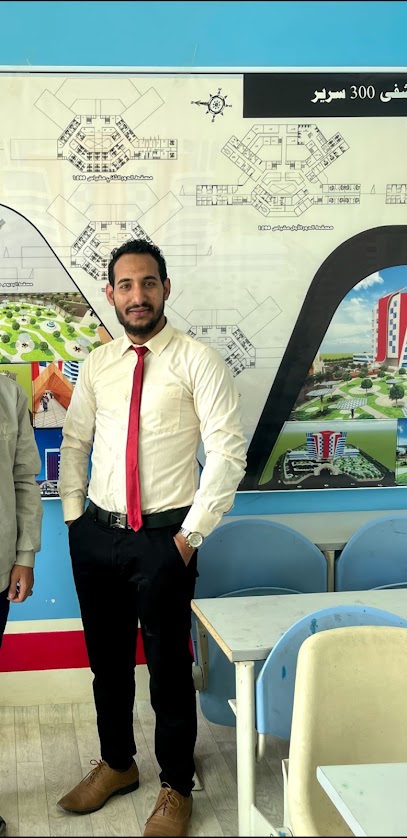
مركز بن حاجب/ احمد حاجب للإلكترونيات/والاجهزة المنزلية
Explore cutting-edge electronics and household appliances at Ben Hajeb Electronics Center in Ibb, Yemen, where technology meets tradition.
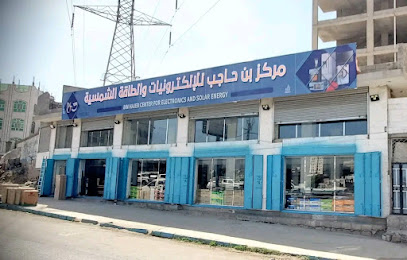
اليوسف للتجارة
Explore Al-Yousef Trading, Ibb's premier beauty supply store, offering a diverse range of beauty products and local treasures for every beauty enthusiast.
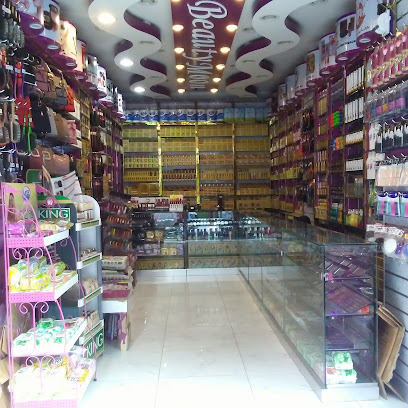
متجر شي إن اليمن
Explore the vibrant styles of Ibb at متجر شي إن اليمن, a clothing store offering unique fashion and local craftsmanship in Yemen.

سوق الصندقه
Experience the local charm and vibrant culture at سوق الصندقه, Ibb's bustling grocery store and market, rich with flavors and traditions.
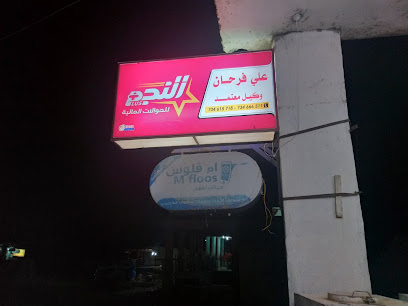
مركـز دار الجمــال للإكسسوارات العطور والهدايا
Explore the charm of مركـز دار الجمــال للإكسسوارات العطور والهدايا in إب, Yemen, where unique gifts and local craftsmanship come together.

محلات رومنتك للاكسسوارات
Explore the charming Romantic Accessories Shop in Ibb, Yemen, and discover unique gifts that reflect local culture and craftsmanship.

بن وبهارات اديب المقطري
Explore the rich flavors and vibrant culture of Yemen at بن وبهارات اديب المقطري, the ultimate shopping destination in Ibb.

مجوهرات العباسي
Explore the exquisite handcrafted jewelry at مجوهرات العباسي in Ibb, Yemen, where tradition meets elegance in every piece.

Essential bars & hidden hideouts
مشروبات الشهاب
Explore مشروبات الشهاب in Ibb, Yemen, where expert mixology meets a cozy atmosphere for unforgettable cocktail experiences.
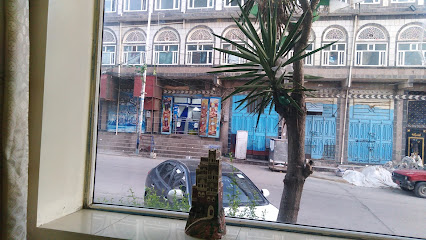
ابو كهلان القاضي لاجود أنواع القات الحوشبي صدور جمام قطل عود
Dive into the heart of Ibb with Abu Kahlān Al-Qāḍī, where local culture and exquisite qāt create an unforgettable experience for travelers.
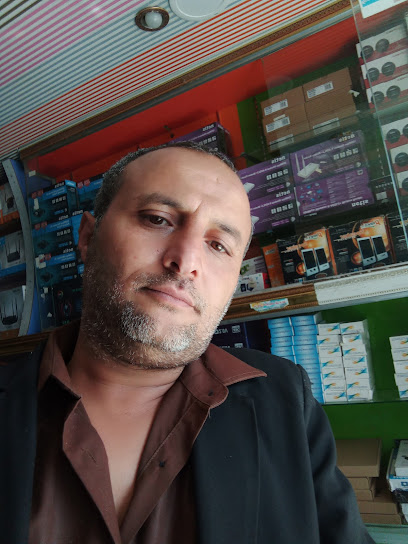
ثلاجة صهيب
Discover the vibrant nightlife of إب at ثلاجة صهيب, the ultimate cocktail bar for an unforgettable experience.

فرزه مترات مجدي جباري
Discover the vibrant nightlife at فرزه مترات مجدي جباري in Ibb, Yemen, where tradition meets modern entertainment in a lively bar atmosphere.
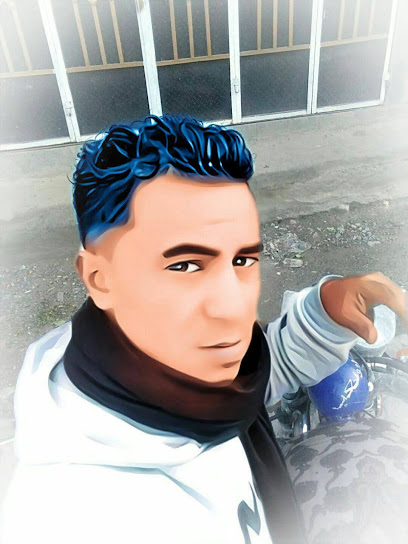
نبيل المشوري
Discover the local flavors and vibrant atmosphere at نبيل المشوري, a charming bar in the heart of Ibb, Yemen.

معسل الفاخر
Discover the authentic Yemeni tobacco experience at معسل الفاخر in Ibb - a social hub where tradition meets modernity.

قاعة المؤتمر
Experience elegance and modernity at the Conference Hall in Ibb, a premier venue for events that embodies the charm of Yemeni culture.

اب
Experience the lively atmosphere and local charm at this bar in Ibb, Yemen, where culture and relaxation meet.

حمود
Discover the vibrant Hamoud Bar in Ibb, Yemen, a cultural hotspot for drinks, live music, and socializing with locals and travelers alike.

جوله ميتم
Discover the vibrant nightlife of Ibb at جوله ميتم, where local culture meets refreshing drinks in a lively atmosphere.

لمسات الشيشة
Experience the vibrant atmosphere of لمسات الشيشة, Ibb's premier destination for authentic shisha flavors and local culture.

ارضيت علي احمد التام
Immerse in the vibrant nightlife of Yemen at أرضيت علي احمد التام, a lively bar offering a unique blend of local culture and refreshing drinks.

ايمن حمود المشرقي
Discover the charm of Ibb at ايمن حمود المشرقي, a local pub that offers a taste of authentic Yemeni culture and cuisine.
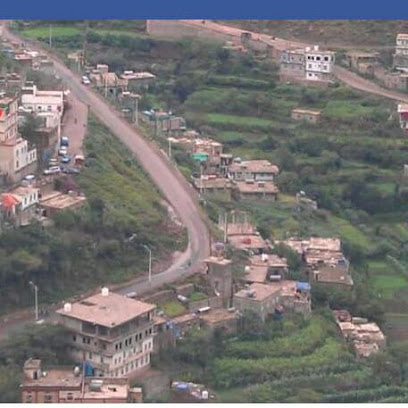
الامبراتور
Discover Al-Ambrator, a unique cider bar in Yemen, where local flavors and a warm atmosphere await every visitor looking for a taste of tradition.

Local Phrases
-
- Helloمرحبا
[marhaba] - Goodbyeوداعا
[wada'an] - Yesنعم
[naam] - Noلا
[la] - Please/You're welcomeرجاء
[rujaa] - Thank youشكرا
[shukran] - Excuse me/Sorryعذرا
[atharana] - How are you?كيف حالك؟
[kayf halik?] - Fine. And you?بخير. وأنت؟
[bikhayr. wa'ant?] - Do you speak English?هل تتحدث الإنجليزية؟
[hal tatahadath al'injilia?] - I don't understandأنا لا أفهم
[ana la afham]
- Helloمرحبا
-
- I'd like to see the menu, pleaseأريد أن أرى القائمة، من فضلك
[uriidu an ara alqa'imat, min fadlik] - I don't eat meatأنا لا آكل اللحم
[ana la aakul allahm] - Cheers!في صحتك!
[fi sahatik] - I would like to pay, pleaseأود أن أدفع، من فضلك
[awadu an adfa', min fadlik]
- I'd like to see the menu, pleaseأريد أن أرى القائمة، من فضلك
-
- Help!النجدة!
[alnajda!] - Go away!انصرف!
[ansarif!] - Call the Police!اتصل بالشرطة!
[atsil bialsurata!] - Call a doctor!اتصل بالطبيب!
[atsil bialtabib!] - I'm lostلقد ضللت الطريق
[laqad dalalt altariq] - I'm illأنا مريض
[ana mareed]
- Help!النجدة!
-
- I'd like to buy...أريد شراء...
[uriidu shira...] - I'm just lookingأنا فقط أتفرج
[ana faqat atfarij] - How much is it?كم هو ثمنه؟
[kam huw thamanuh?] - That's too expensiveهذا غالي جدا
[hatha ghali jiddan] - Can you lower the price?هل يمكنك تخفيض السعر؟
[hal yumkinuka takhfid alsiear?]
- I'd like to buy...أريد شراء...
-
- What time is it?كم الساعة؟
[kam alsaeat?] - It's one o'clockالساعة الواحدة
[alsaeat alwahida] - Half past (10)الساعة العاشرة والنصف
[alsaeat al'ashira walnisf] - Morningالصباح
[alsabah] - Afternoonالظهيرة
[alzuhaira] - Eveningالمساء
[almasa] - Yesterdayالبارحة
[albariha] - Todayاليوم
[alyawm] - Tomorrowغدا
[ghadan] - 1واحد
[wahid] - 2اثنان
[ithnan] - 3ثلاثة
[thalatha] - 4أربعة
[arba'a] - 5خمسة
[khamsa] - 6ستة
[sitta] - 7سبعة
[sab'a] - 8ثمانية
[thamania] - 9تسعة
[tasia] - 10عشرة
[ashara]
- What time is it?كم الساعة؟
-
- Where's a/the...?أين يوجد...؟
[ayn yujad...?] - What's the address?ما هو العنوان؟
[ma huwa al'anaan?] - Can you show me (on the map)?هل يمكنك أن تريني (على الخريطة)؟
[hal yumkinuka an tureenii (ala alkharitah)?] - When's the next (bus)?متى يأتي الحافلة التالية؟
[mata yati alhafalat altaliat?] - A ticket (to ....)تذكرة (إلى...)
[tadhkirat (ila...)]
- Where's a/the...?أين يوجد...؟
History of Ibb
-
Ibb, often referred to as the 'Green Province' due to its lush landscapes, has a history that dates back to ancient times. Archaeological evidence suggests that the region was inhabited as early as the Sabaean and Himyarite periods. These ancient civilizations developed advanced irrigation systems that allowed agriculture to flourish, laying the foundation for Ibb’s future prosperity.
-
With the advent of Islam in the 7th century, Ibb became an integral part of the Islamic world. The city saw the construction of numerous mosques and madrasas (Islamic schools). The Al-Saleh Mosque, one of the oldest in the region, stands as a testament to the city’s early Islamic architectural heritage.
-
In the 16th century, Ibb came under Ottoman control. This period saw the introduction of new administrative practices and architectural styles. The remnants of Ottoman influence can still be seen in some of the city’s buildings and infrastructure. The Ottomans also contributed to the fortification of the city, enhancing its strategic importance.
-
Following the decline of Ottoman power in the 19th century, Ibb came under the rule of the Yemeni Imams. This period was marked by relative stability and the flourishing of cultural and educational institutions. The Imams focused on developing the city's agricultural potential, making it a vital center for the production of coffee and qat.
-
In the 20th century, Ibb played a significant role in Yemen’s journey towards unification. The city was a hub for nationalist movements and saw significant political activity. After the unification of North and South Yemen in 1990, Ibb became an important administrative and economic center in the newly formed Republic of Yemen.
-
Ibb is renowned for its rich cultural heritage. The city is famous for its traditional music, dance, and artisanal crafts. Festivals such as the annual Ibb Cultural Festival showcase the region’s vibrant traditions. The old souks (markets) of Ibb are a treasure trove of local handicrafts, spices, and textiles, reflecting the city’s diverse cultural tapestry.
-
The architecture of Ibb is a blend of various influences, including Islamic, Ottoman, and Yemeni styles. The old city is characterized by narrow, winding streets lined with multi-story buildings made of stone and mud brick. Notable landmarks include the Al-Qahira Castle, which offers panoramic views of the city, and the historic Al-Jabarti House, an example of traditional Yemeni architecture.
Ibb Essentials
-
Ibb is located in the southwestern part of Yemen. The nearest major airport is Sana'a International Airport (SAH), approximately 190 kilometers north of Ibb. From the airport, you can hire a taxi or a private car to Ibb, which typically takes around 3 to 4 hours by road. Public buses and shared taxis (known locally as 'taxis') also operate between Sana'a and Ibb, offering a budget-friendly alternative.
-
Within Ibb, local taxis and minibuses are the primary modes of transportation. Taxis can be hailed on the street or booked through local taxi services. Minibuses operate on fixed routes and are a cost-effective way to get around the city. For more flexibility, consider renting a car, but be aware that driving conditions can be challenging due to narrow, winding roads and local driving habits.
-
The official currency in Yemen is the Yemeni Rial (YER). Cash is the preferred method of payment, especially in small shops, markets, and rural areas. ATMs are available in Ibb, but it's advisable to carry sufficient cash, as not all establishments accept credit cards. Ensure you have small denominations for convenience, as larger notes can be difficult to break.
-
While Ibb is generally considered safe for tourists, it's essential to remain vigilant and take standard precautions. Avoid isolated areas, especially at night, and keep an eye on your belongings in crowded places. Some neighborhoods may have higher crime rates, so seek advice from locals or your accommodation on which areas to avoid. Always stay updated on current travel advisories related to Yemen.
-
In case of emergency, dial 199 for police assistance or 191 for medical emergencies. The main hospital in Ibb is Al-Thawra Hospital, equipped to handle various medical situations. It's highly recommended to have travel insurance that covers medical emergencies. For minor health issues, several pharmacies in Ibb can provide over-the-counter medications.
-
Fashion: Do dress modestly. Men should avoid shorts, and women should cover their heads and wear long skirts or trousers. Religion: Do respect local customs, especially in mosques. Remove your shoes before entering and avoid interrupting prayers. Public Transport: Do be respectful and considerate to other passengers. Don’t eat or drink in public transport. Greetings: Do greet people with 'As-salamu alaykum' (peace be upon you). A handshake is common among men; among women, a nod or verbal greeting suffices. Eating & Drinking: Do try local dishes and accept food offerings graciously. Don’t refuse hospitality, as it can be considered impolite.
-
To experience Ibb like a local, visit the traditional souks where you can buy fresh produce, spices, and handicrafts. Engage with locals who are often eager to share their culture and history. Don’t miss the opportunity to explore the old city, with its historic buildings and vibrant atmosphere. For a unique experience, visit the Jibla area, home to the Queen Arwa Mosque and other historical sites.
Nearby Cities to Ibb
-
Things To Do in Dhamar
-
Things To Do in Sana'a
-
Things To Do in Aden
-
Things To Do in Obock
-
Things To Do in Tadjoura
-
Things To Do in Djibouti City
-
Things To Do in Loyada
-
Things To Do in Arta
-
Things To Do in Ali Sabieh
-
Things To Do in Jizan
-
Things To Do in Dikhil
-
Things To Do in Najran
-
Things To Do in Hargeisa
-
Things To Do in Khamis Mushait
-
Things To Do in Abha






